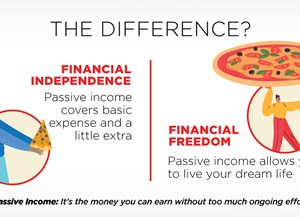Buying a house is one of the biggest financial decision most of us will make in our lives. And we will generally be pleased with what we decide because house prices, like global stock markets, are guaranteed to rise in the long term.
But just how quickly our new property grows in value depends both on the market and on whether we are willing to take a calculated risk in buying off-plan. As populations rise, the demand for housing increases accordingly and we’re keen to get on the ladder – or move up a step or two – before property inflation squeezes us out.
The popularity of off-plan – that’s agreeing to purchase a house or apartment before it is built – has rarely been higher. The primary benefit is an attractively discounted price while the risks these days are far less than in the past when fewer safeguards were in place.
Gulf-based businessman David Finlay (not his real name) still feels embarrassed recalling his naivety when he set about buying into a new London property development in the 1980s. The old West London air terminal in Cromwell Road in Kensington, an area he knew well, was being converted into 320 luxury apartments which were being sold off-plan – the two-bedroom flat he wanted costing around £350,000.
David, a marketing executive with little experience in buying property, thought the value would rise considerably by the time the large block was completed in a year or two so he agreed on a deal and paid a ten per cent deposit.
Little progress was made in the first year, during which time the developer went bust. Another took over and David was required under the contract to pay a further ten per cent. He wondered if he was sending good money after bad but did it anyway.
The second developer also went into liquidation. The banks took possession of the £80 million building and sold it to a third for just £3 million, simply to get it off their books. The new owners tried to renege on the debt to the deposit holders and the case went through the courts for several years, costing David many thousands more in legal fees.
Eventually, the court awarded the return of their money and substantial interest to the 300 deposit holders whose names had been recorded in the official Land Registry. The 20 who purchased late and had not at that point been registered as owners, lost their investments. The lawyers refused to appeal in case the main award was overturned. David was among the unfortunate 20. In total, the whole sorry business cost him more than £100,000.
This true story is, of course, a worst-case example of what can happen when purchasing property before construction has been completed, or even started. And David soon realised he had made several fundamental and obviously expensive errors.
First, he failed to check out the initial developer. Nowadays, in the age of Google, it’s much easier to do that, but there were ways he could have examined the financial history, reputation and viability of the firm. Secondly, he didn’t involve a lawyer who would have checked if the developer had insurance in place. Nor did David ascertain what options might be available in the event of the developer’s insolvency. And, ultimately, he didn’t seek to pressure the lawyers into ensuring that any award by the court was shared among all deposit holders.
Of course, it’s easy to be wise after the event. People don’t expect their dreams to crumble in such a painful way. Back then, people took on trust the assurances given by often well-known developers. That, however, has changed. There will always be instances like David’s, but they occur with less frequency as more and more protections are built into off-plan which continues to grow at a significant pace.
In well-established markets like Europe and the United States, the majority of sales involve existing properties. But off-plan buying is being increasingly accepted by banks and mortgage companies.
That’s why it’s not unusual in many countries to see homebuyers lining up around the block waiting for a show property to open, especially at entry-level developments. The benefits to purchasers obviously outweigh the risks or there would be no demand. There’s an initial deposit of around ten per cent with one or two further small payments until the property is completed and the balance is due. Or you will have arranged a mortgage in advance.
On the plus side, the buyer gets the property at the price initially agreed, even though it may have gone up in value in the time between. If the market is booming and you’re looking for a quick profit, you can sell before the final settlement if your mortgage terms allow it.
If the property is to be your family home, you have the advantage of securing a major asset with time before you have to find the bulk of the purchase price. That means you can organise your finances in a more leisurely way and you don’t have to rush through the sale of your existing property, perhaps at a lesser price than you’d hoped for. You can also visit the property when it’s under construction and have a say in the fixtures and fittings.
The basic attraction of off-plan is that you’re buying at a discount that will usually be between ten and 20 per cent, depending on the country. But it won’t all be plain sailing. There are still potential pitfalls for the unwary. If you’re buying an apartment with glorious sea views, you don’t want to see another large block going up right in front of your window. Or the developer may go out of business but if you, unlike David, have safeguards in place, all you may lose is your composure. So it’s vital to have a good lawyer on your side.
In some instances, the value of the property may have dropped in the time since you paid your deposit and, if it has, you should take the long-term view. Values rarely stay down for too long.
There might be a change in your financial circumstances – you lose your job, for example. If you’ve been a wise buyer, you’ll have sought out insurance that might cover you for a limited period. If you haven’t got that and have no immediate prospects of new employment, you can always seek to sell the property.
There are times, of course, when construction stops or slows. It did that in a big way after the 2008 market collapse but eventually picked up again. At times, a temporary saturation point will be reached. That means the sales emphasis may shift to the secondary market but real estate agents will seek to convince us that this really is the time to snap up off-plan bargains. And they may well be right.
Investing off-plan can be a rewarding venture, but the message that needs repeating is that potential buyers should always contact a certified real estate broker or property lawyer before making any off-plan investment decision.








